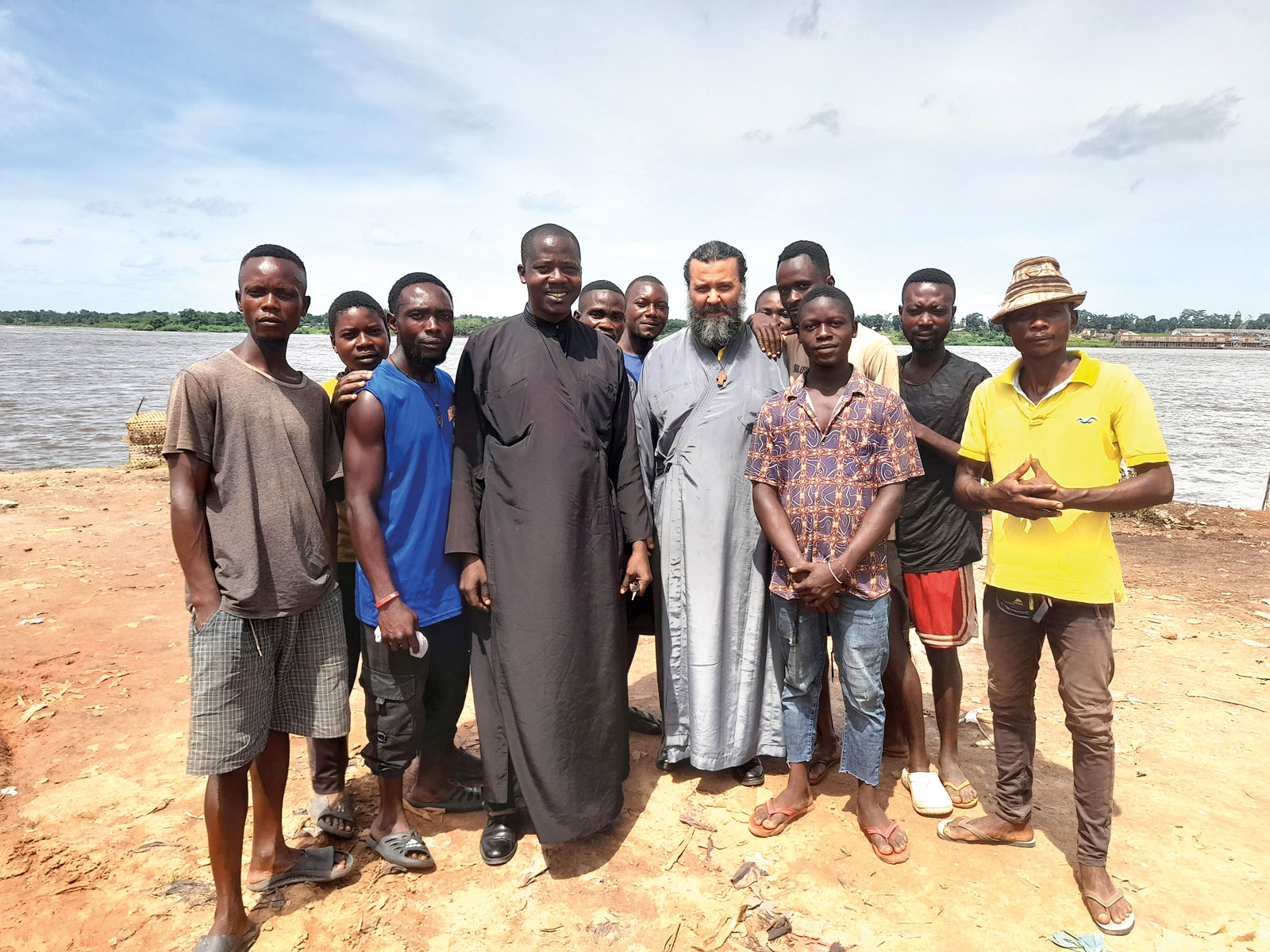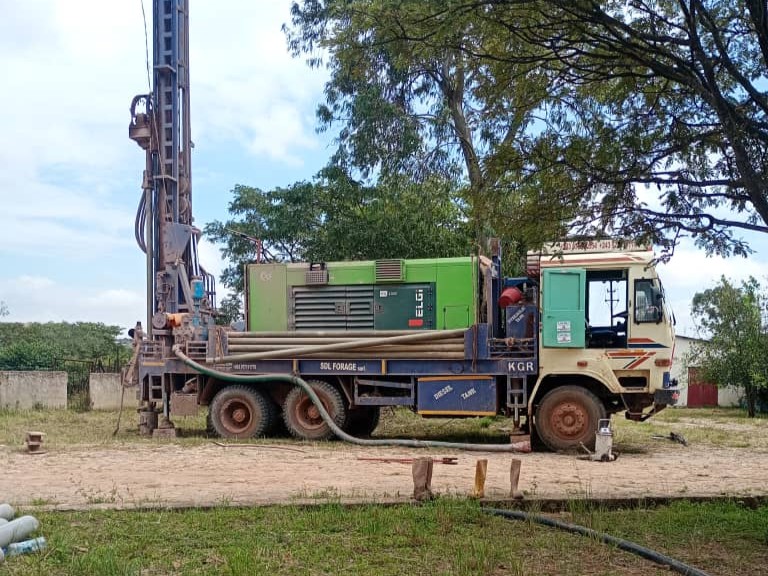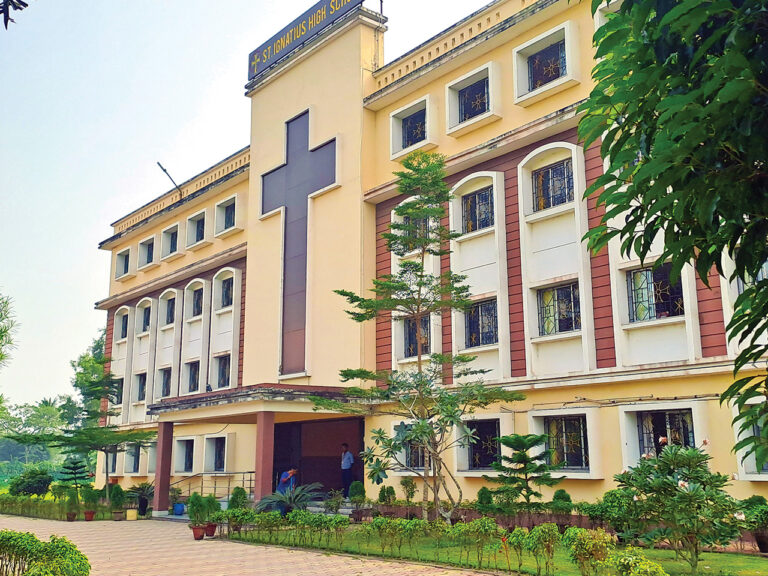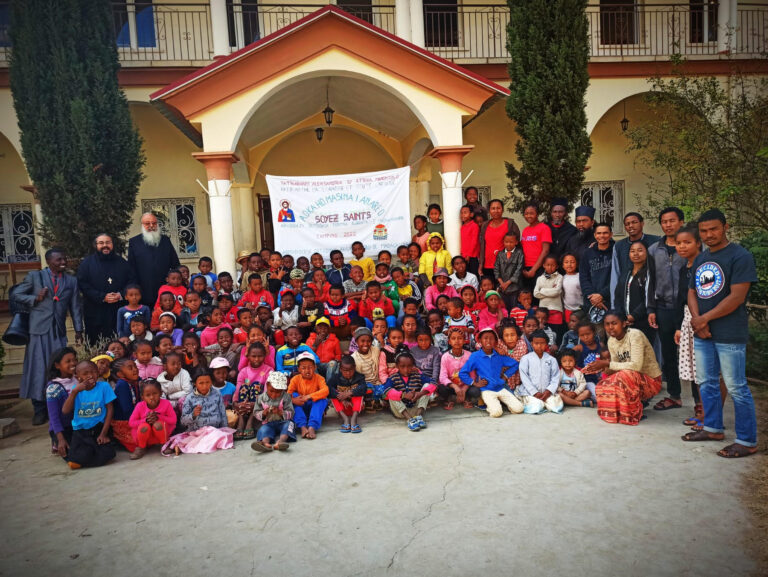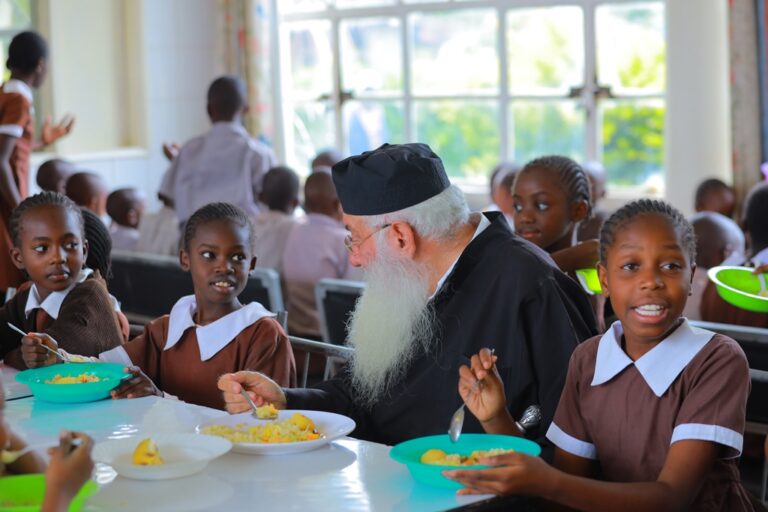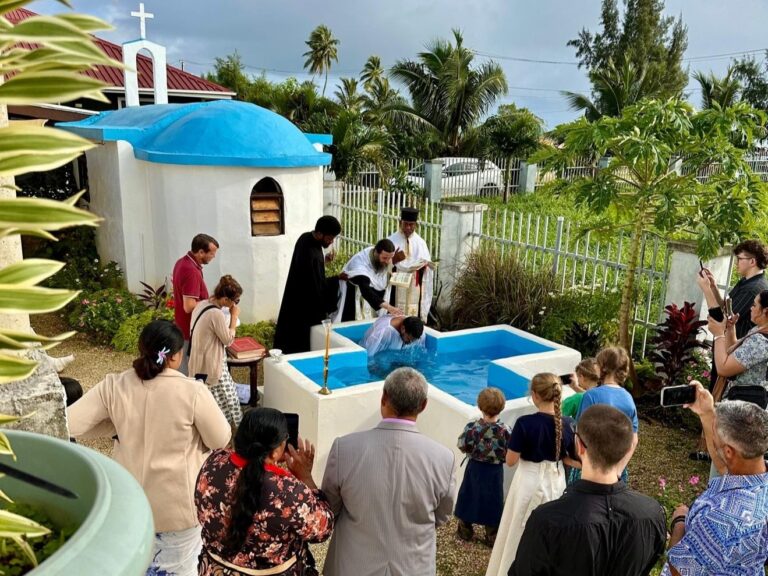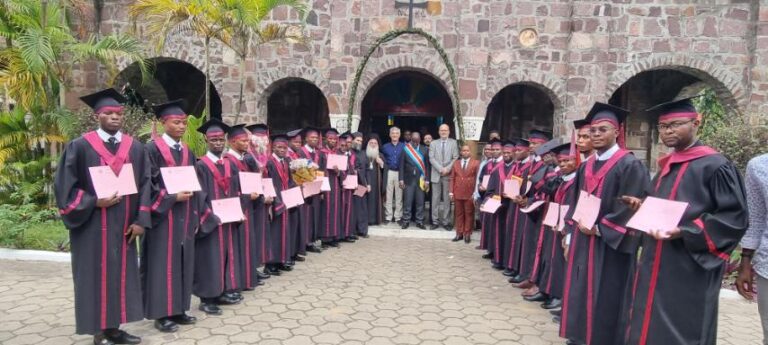In the Arms of Africa
“My brethren, we celebrate together for the first time in this place where I have been brought by the Grace of God and the mandate of our Venerable Patriarch, whom I thank, along with you all, from the bottom of my heart. We celebrate Easter, our first common Resurrection service but in a different light; a light indicating the future of our Diocese. Today, along with the Holy Light which we have just received with our candles and we have held in our hands until now, another light was lit, a light that foretells the coming course of the Church in our place. And one does not have to be a prophet to feel and see this light. It is enough to think about the course of the Church, which by definition is this incarnation of the Resurrection message. Death and Resurrection in a marvelous, serene sequence: Verily, verily, I say unto you, Except a corn of wheat fall into the ground and die, it abideth alone: but if it die, it bringeth forth much fruit (John, 12:24). These were, in short, a few simple words around the meaning on which the writer chose to focus his sermons during the Holy Week and the first Easter in the new place of his ministry here, in the Sacred Church of the Annunciation of the Theotokos of the Greek Orthodox Community in our Holy Diocese in Kisangani.
In the middle of the African continent, a new Diocese is born. The city of Kisangani was formerly called Stanleyvill in honor of the first British explorer Hanrey Morton Stanley. Nevertheless, the name that was eventually established was the oldest first name Kisangani in Swahili and Singitini in Lingala, which are two locally spoken languages. Both of the established names are interpreted as “the city on the island”.
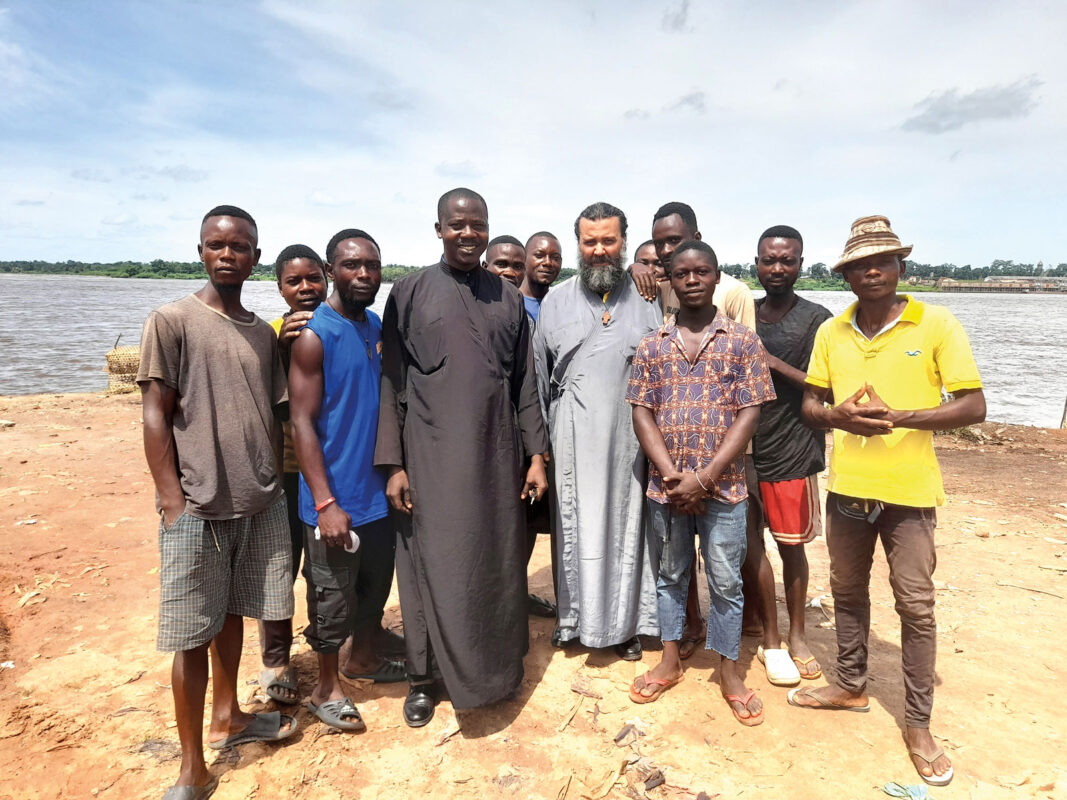
But which island are we talking about in the middle of Africa? And yet, here, in the middle of Africa, there are over 4,000 islands in this deepest river in the world, the Congo, whose depth comes to 220 meters in parts, where many times sunlight cannot reach. On one of these islands, in the eastern part of the Democratic Republic of the Congo, in WanaLesali, was the first village from which the name of our city derived.
The borders of the Diocese of Kisangani extend to the wider region of Eastern Congo called Province Orientale, which territorially equates to about four times Greece. Kisangani is the capital of the region and its largest city. Morphologically, it is surrounded by the rivers Congo, Chopo and Lindi and looks like an island in the middle of tropical African forests. Within the boundaries of the Diocese, at a very long distance from each other, we have three parishes, which have been built by the once prosperous Hellenism here. An integral part of the once great Greek communities of Kisangani, Bunia and Iziro, these three Churches of ours, have stood heroically for about 70 years to give their own solitary testimony of the Greek-Orthodox spirit , here in the heart of Africa.
Today, our Churches, old but at the same time noble, stand on their feet inviting us, their contemporary heirs of their Greek-Orthodox tradition, to offer them our love and to restore them to their original dignity and splendor. Struck by the time, the abandonment, the looting which our expatriates lived in this land, and finally by the tragic declining course of Hellenism here, they ask for two things: their maintenance and preservation and the increase and support of the flock, mainly of the local population, which for so many years has filled and adorned them with their testimonial worship life in their sacred space.
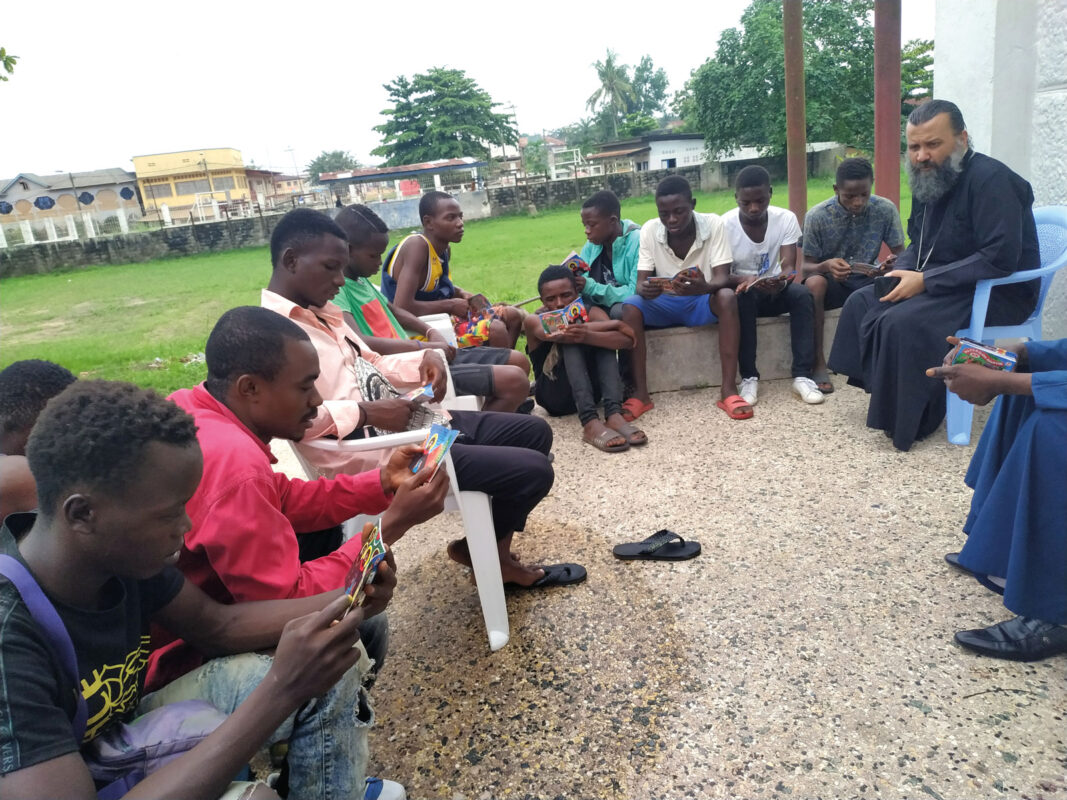
Thus, our Diocese, my brothers, is still in its infancy in the arms of Africa. The needs are innumerable. Hierarchically speaking, however, we could say that what is paramount is the construction of a complex for the accommodation of a Mission Center, and at the same time of an educational structure which will give life to the whole region, thus giving the first notes of its Greek- Orthodox witness to our place. It is also considered necessary to maintain our Sacred Church of the Annunciation of the Theotokos, which is initially the Diocesan Cathedral, until financial resources are found for the construction of a new one, which of course, presupposes further development of our Missionary activity. All this needs to be accomplished soon, since the catechesis of the first children who have come to us have already begun, and we are expected to perform our first baptisms in the near future.
Also, in the city of Bunia we already have several catechumens awaiting their baptism. In Izirou, apart from the St. Demetrius’ Sacred Church which needs maintenance work, we must also maintain the Sacred Church of St. Barbara, situated 200 km away from the city, and provide for its pastoral care and ministry.
In terms of charity, we have started emergency meals for needy and homeless children, along with provision of medical care when needed. Many of these children are already catechized. The systematization of our charitable activity here, however, requires special space and resources.
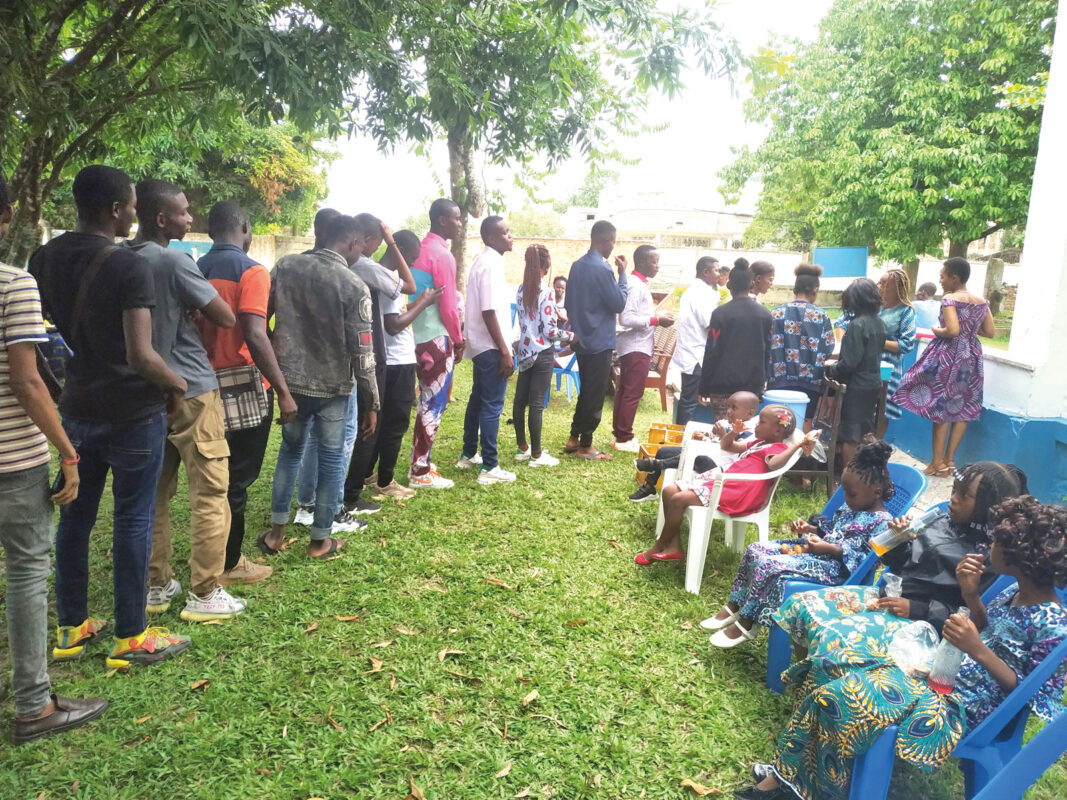
Finishing my first reference to missionary work in our new place of ministry here in Kisangani, I would like to thank the Orthodox Missionary Fraternity, which has repeatedly supported the work of the two Dioceses of Madagascar that I served for 12 consecutive years, until 4 months ago. I would also like to thank the Fraternity for having already started to support the Missionary work in our new Diocese here in Kisangani. And of course, I would like to thank all of you who have been supporting my personal struggle for so many years, above all spiritually.
Finally, I would like to invite you all to participate in this multifaceted effort to build our new Diocese, each one in any way they can. You can always support us through your prayers, which I primarily ask for so that we can have along with God’s help, success of our effort. Christ is Risen! Least among brothers
Archimandrite Polycarpos Diamantopoulos Patriarchal Commissioner of the Diocese of Kisangani

